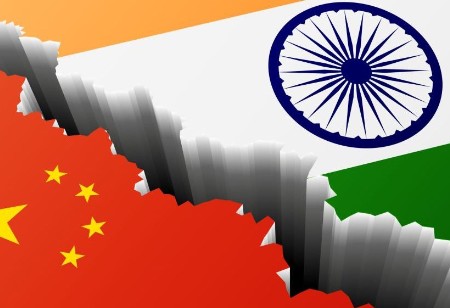
India Stringent towards Avoiding Agreements with China-led RCEP


CEOInsights Team, 0
“India will avoid joining agreements, which are in reality FTAs by stealth with countries like China,” said an official. India had pulled out of the pact last year after negotiating it for seven years citing its concerns on trade deficit, circumvention of rules of origin and base rate of customs duty, remaining unaddressed. The official also stated “We are already suffering huge trade imbalance and market distortions with these countries. This has negatively impacted domestic producers and the Indian economy”.
According to the officials, India took a stand based on firm principles. New Delhi has said its stance to not join the pact remains unchanged despite calls by the grouping ‘expressing their strong will to re-engage’. The RCEP now comprises the 10 Association of Southeast Asian Nations (ASEAN) nations, as well as Australia, China, Japan, South Korea and New Zealand.
Reasons why India didn’t sign the RCEP agreement
The RCEP aims to remove trade barriers, including tariffs and duties, among its 16 members for a seamless flow of goods and services. However, at a time when India is going through an economic slowdown, the signing of the pact could have put further strain on an already struggling economy.
In the lead up to the events of Monday, India’s potential signing of the agreement had raised much consternation domestically. The manufacturing and farming industries had raised concerns about lack of trade protection when cheap imports from China would have flown into the country with even fewer barriers. India already runs a $50 billion trade deficit with China and RCEP would have stretched the chasm even wider.
India will avoid joining agreements, which are in reality FTAs by stealth with countries like China
India’s concerns for protection for its domestic industries were not adequately answered leading to it pulling the plug.
Farmers' organisation All India Kisan Sangharsh Coordination Committee (AIKSCC), which had railed against the RCEP, expressed satisfaction about India’s decision.
"AIKSCC is happy that good sense has prevailed on this government and its decision to barter away the lives and livelihoods of crores of farmers, workers and small businesses has been averted," AIKSCC convenor VM Singh was quoted as saying by IANS.
The Swadeshi Jagran Manch (SJM), the economic wing of the Rashtriya Swayamsevak Sangh (RSS), had relentlessly tried to dissuade Modi from signing the pact. SJM’s national co convenor Ashwani Mahajan said that the move was in favour of Indian economy.
New Delhi had raised concerns at a threat of Circumvention of Rules of Origin by China wherein cheap goods from China would come into India via other RCEP members. It had also sought a change in base rate of customs duty from 2014 to 2019 to reflect latest realities and safeguard domestic manufacturing of electronics and mobile phones. “These were not bargaining chips for greater concession. To sign RCEP, India needed to resolve issues in its previous FTAs and ensure balanced, fair and beneficial framework in the RCEP,” stated the official.
Similarly, it had pitched for an automatic mechanism to impose safeguard duties in case of import surge from RCEP members and a carve-out that local policy measures should be applicable only in top two levels of government. India also wanted an exclusion from the Most Favoured Nation (MFN) clause related to investment commitments under the pact as it offers such benefits on investments only to strategic allies or geopolitical reasons and was not keen to be hand out to countries it has border disputes with.
More than a year before the signing, Prime Minister Narendra Modi signaled India’s decision not to join RCEP, telling a summit in Bangkok in 2019: “When I measure the RCEP agreement with respect to the interests of all Indians, I do not get a positive answer. Therefore, neither the Talisman of Gandhi Ji nor my own conscience permits me to join RCEP”. China’s official Xinhua news agency said on Monday that India had committed a ‘strategic blunder’ and ‘missed the bus’ to long-term growth by not signing the deal.